Growing Resilience: How VSLAs, Smart Farming, and Crop Insurance Are Transforming Lives in Makueni and Kitui
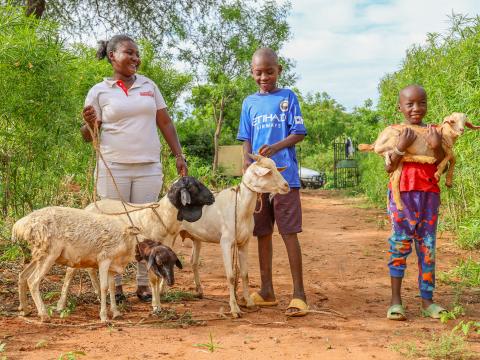
Makueni and Kitui counties, located in South Eastern Kenya, are no strangers to the harsh realities of climate change. Frequent droughts, erratic rainfall, and climate shocks have led to repeated crop failures, soaring food prices, and persistent food insecurity. In this arid, rain-fed region, smallholder farmers struggle to adapt, with limited resources to withstand the impact of a changing climate.
Agriculture is the backbone of the local economy, employing over 78% of the population. Livelihoods here revolve around crop and livestock farming, beekeeping, and fishponds, with a focus on drought-tolerant crops such as green grams, cowpeas, millet, and sorghum. Yet even these resilient crops are increasingly threatened by unpredictable weather patterns, leaving communities more vulnerable than ever.
By mid-2024, more than 4.1 million people in Kenya’s arid and semi-arid lands (ASALs), including Makueni and Kitui, were facing acute food shortages.
But change is taking root.
World Vision Kenya’s Sustainable Food Systems Programme (SFSP), implemented in partnership with the World Food Programme, is now bringing hope, fostering economic empowerment and building resilience among farming communities in both counties.
The programme specifically targets households that previously depended on Protracted Relief and Recovery Operations (PRRO), offering a long-term solution that integrates financial inclusion, climate-smart agriculture, and value chain development.
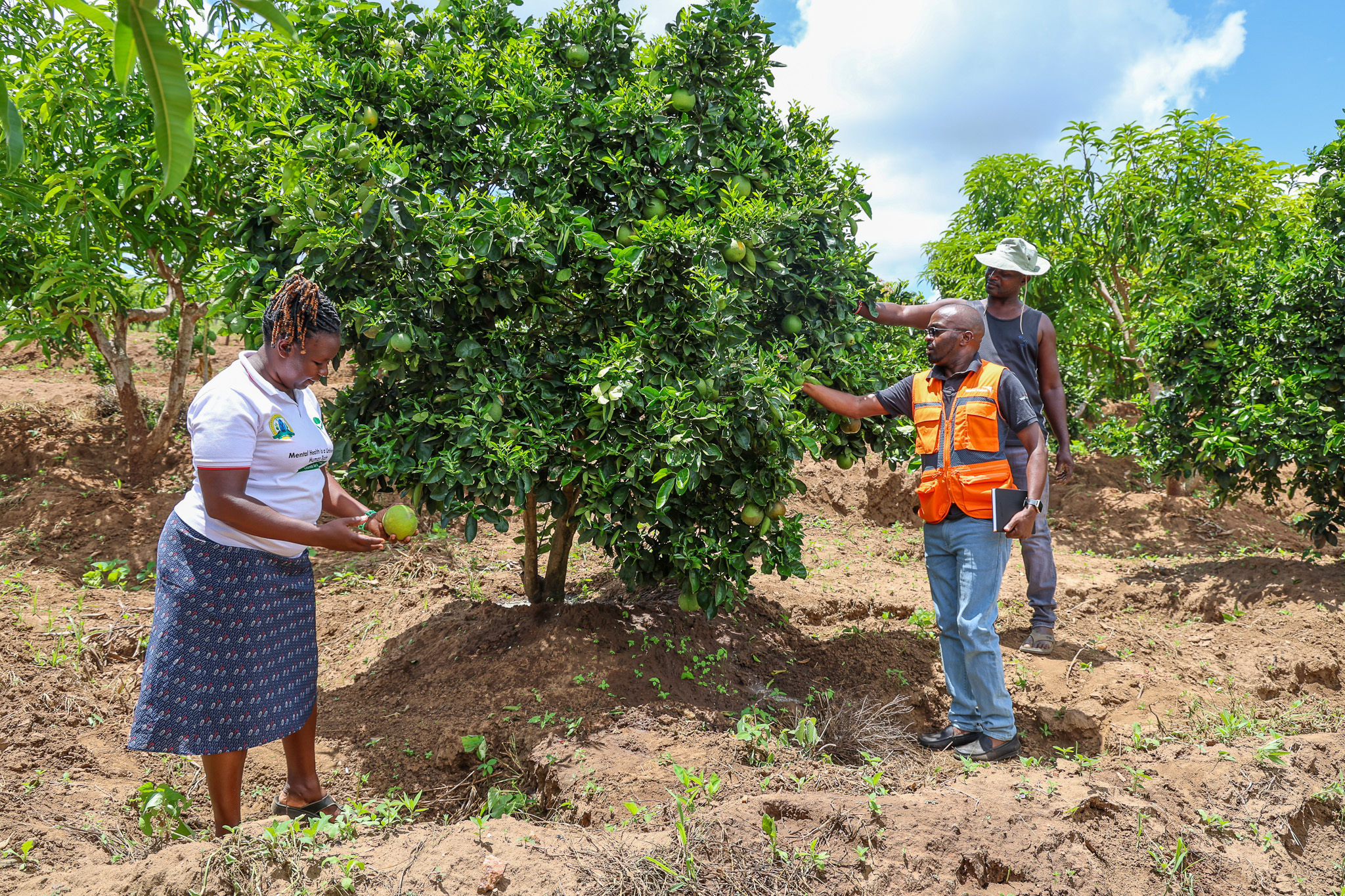
“The Sustainable Food Systems programme in Makueni and Kitui, supported by WFP, follows the R4 model,” says Stephene Mwangangi, project coordinator, World Vision Kenya. “It includes VSLAs for savings (Risk Reserve), farm investments (Risk Taking), training in climate-smart agriculture (Risk Reduction), and crop insurance (Risk Transfer).”
Aligned with the Kenyan Government’s Big Four agenda, World Vision Kenya’s strategy, and WFP’s Country Strategic Plan, the Sustainable Food Systems Programme has enhanced local production and self-reliance for over 10,600 participants and 500+ VSLAs in Makueni and Kitui. It has improved livelihoods, empowered women and youth from former PRRO households, and strengthened value chains, financial access, and climate resilience.
Women like Felisters Kariuki, from Nganwa Village, Makueni and Christina Muthengi from Mlangoni Ward, Tseikuru in Mwingi North, Kitui are leading the way through Village Savings and Loan Associations (VSLAs), building financial resilience, increasing food production, and driving economic empowerment.
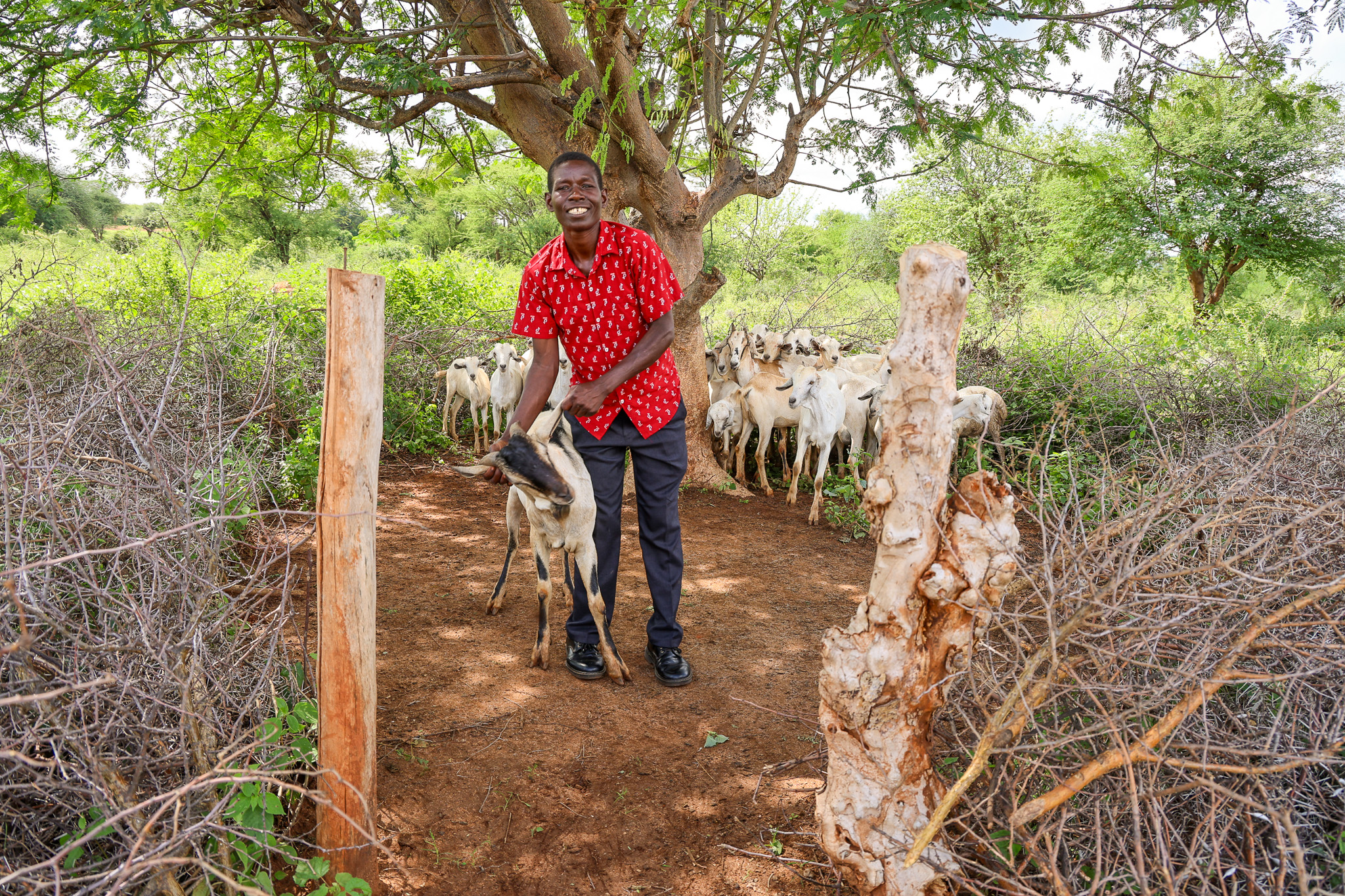
Christine joined the Wikwatyo VSLA self-help group just two years ago with very little savings. Through World Vision Kenya’s training, she and other members embraced the concept of group savings. “Before the VSLA, we didn’t know about group savings,” she says. In their first year, Christine received Kshs 6,000 (46 USD), which she used to buy three goats. Encouraged, she took a small loan to buy two more, and soon her flock began to grow.
Today, Christine owns over 30 goats and credits the VSLA for transforming her financial life. With a second loan of Kshs 16,000 (123 USD), she expanded further and now earns income from selling surplus milk. “I no longer struggle with school fees or feeding my children,” she says. Christine now plans to enter the goat-selling business by 2027 and hopes to eventually own several cows.
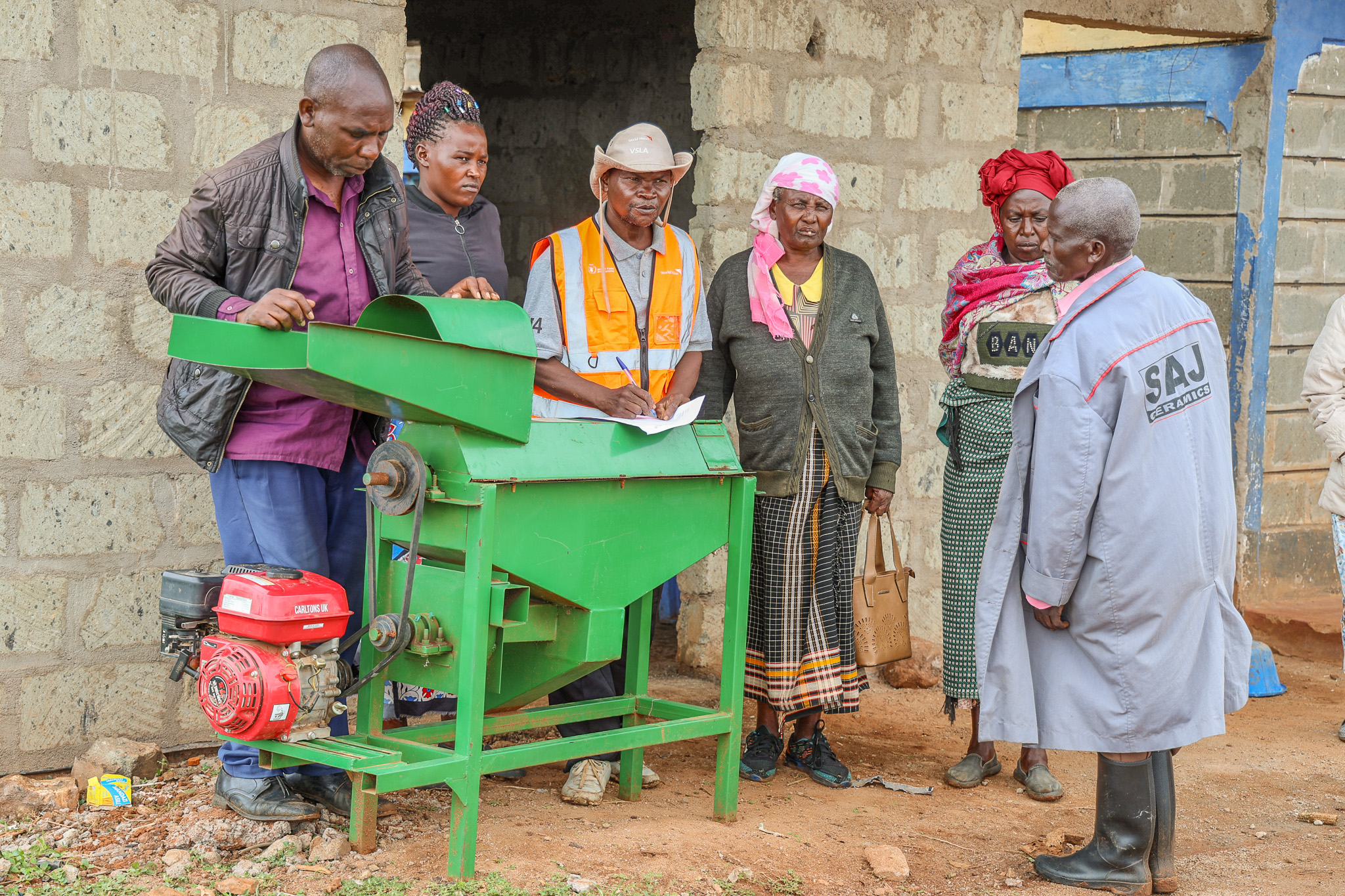
In Kanyonyo Village, Kwa Vonza Ward, Kitui Rural, the Mauseo Kivunga “A” VSLA group has made significant financial strides since its formation in 2021. With about 30 members, the group began saving after training from World Vision Kenya and now owns a crop shredder, which they rent out to members and the community to process green grams and sorghum generating extra income.
The project helped farmers construct water pans to harvest rainwater for use during dry seasons, improving agricultural productivity.
Alfred Muema, Village Agent, notes that training in agronomic practices and the introduction of crop insurance by World Vision Kenya and the World Food Programme, in partnership with APA Insurance, have advanced climate-smart agriculture. In this drought-prone region, the insurance serves as a vital safety net, compensating for crop losses and enhancing food security.
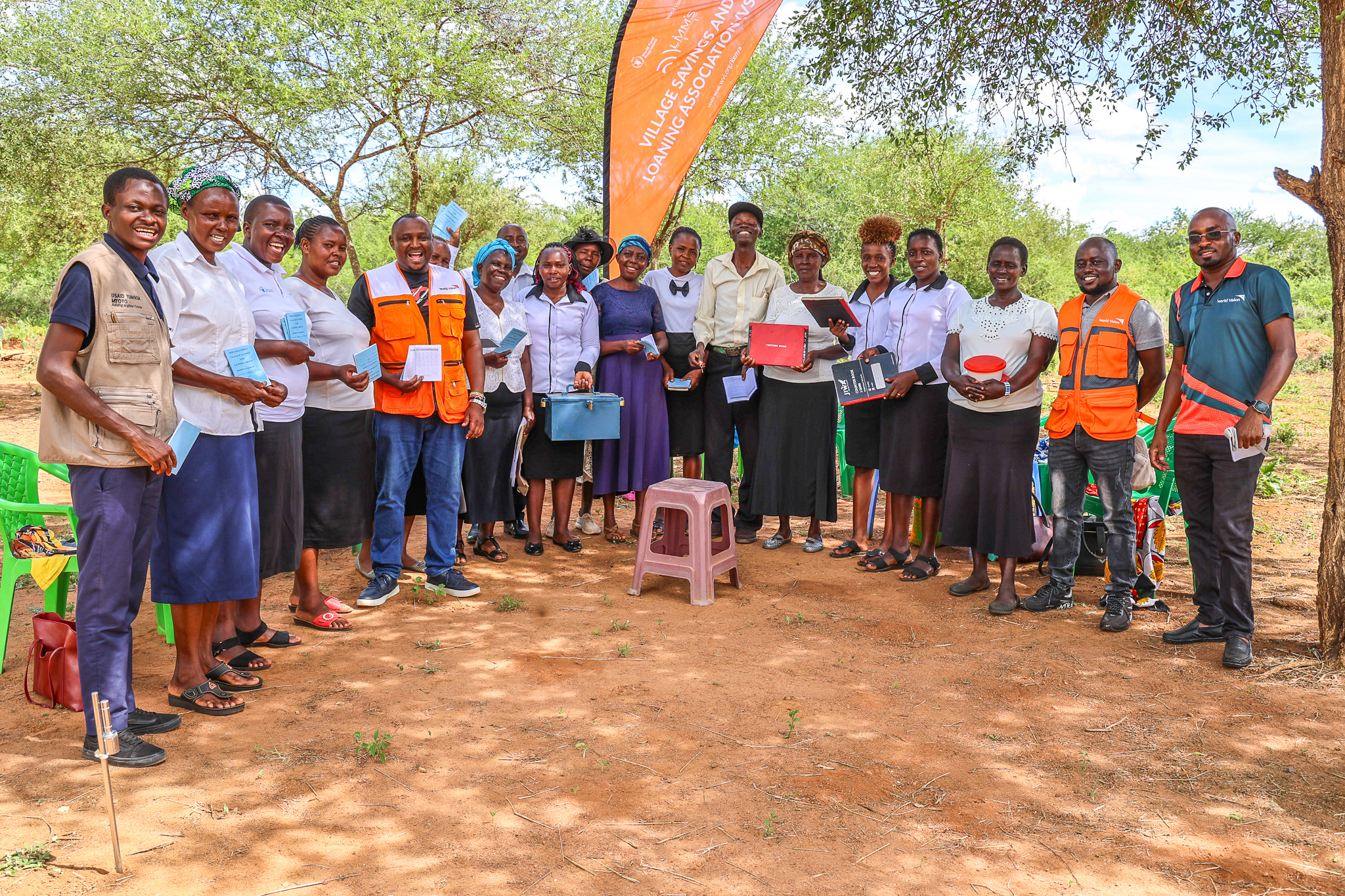
In Kyase village, Makueni County, members of the Mwanzo Mpya VSLA gather under a tree for their weekly table banking session. Among them is Eunice Mutunga, a dedicated member, Village Agent, and Trainer of Trainers. She recalls how the group started in 2018 with limited knowledge of saving or lending, but after training from World Vision Kenya and the World Food Programme through the Saving for Transformation (S4T) model, they embraced group savings, transforming their lives and livelihoods. Today, the group has grown to over 30 members committed to financial empowerment.
Eunice highlights how the benefits go beyond finances. Members can now pay school fees, provide better meals, and invest in poultry, livestock, and climate-smart farming, improving household food security. A clear symbol of progress, she says, is the widespread ownership of water tanks, once thought unaffordable. “We used to think only salaried people could buy them,” she notes, “but now, every member owns one or two.” The change reflects a growing sense of dignity and resilience in the village.
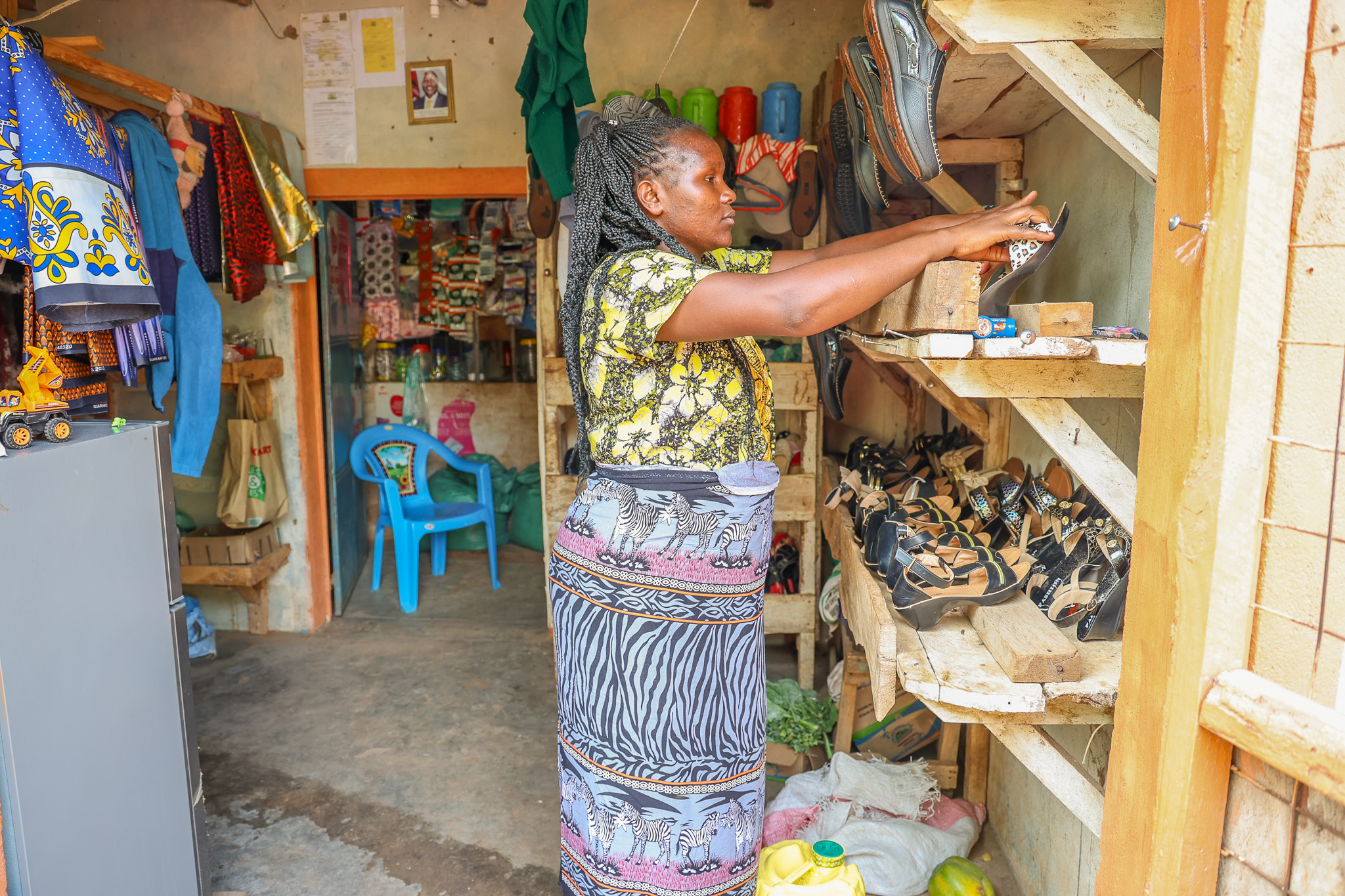
Cecilia Kiminza from Mutomo, Kitui Rural, has made great strides since joining a local VSLA in 2023. With savings and loans from the group, she expanded her shop at Kiange Shopping Centre to include clothes and shoes, and bought two bulls to help plough her farmland.
Likewise, June Mwendwa from Kyuso Ward, Mwingi North, has set up a fully stocked retail shop. Her success is thanks to the financial support she received through the Vision Kimu Self-Help Group.
Phyllis Kariuki, Financial and Risk Management Lead for WFP’s Sustainable Food Systems programme, highlighted the economic resilience built within communities. She noted that smallholder farmers are now better able to use resources like water pans and farm bonds for irrigation, while also “accessing savings and loans to support daily needs and generate income.”
She added that the programme aims to transition some farmers into the Kilimo Endelevu initiative, which will establish sustainability hubs. Makueni already has four hubs, with Kitui expected to set up its first by 2026.
By Jared Ontobo, Emergency Response Communications Specialist, World Vision Kenya